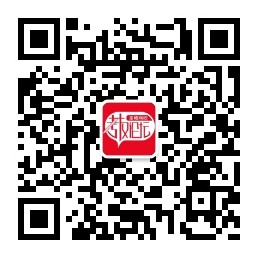作者简介
本文译者李舒心,2012级中山大学国际商学院学生。小时候的梦想是当世界上最棒的画家,没想到现在居然在学会计,说不定老了以后还能开一家咖啡店?所以相信生活有无限种可能。对ACCA又爱又恨,总之把枯燥的知识变得有趣起来吧。
正 文
Thomas Jefferson once said that “honesty is the first chapter in the book of wisdom”. Though truth-telling abounds in grade school platitudes, it seems scarcer the older we get. But this decline in honesty — let’s call it dishonesty — isn’t necessarily innate. Dishonesty can be taught. In my experience, I’ve noticed that, of all culprits, college career centers are exceptional traffickers of such miseducation. In the process, they’re hurting their brightest students’ chances of making it in the world of startups by convincing them to give dishonest answers to tough interview questions.
美国总统托马斯·杰斐逊有句名言:“诚实,是智慧之书的第一章。”在上小学的时候,我们总是被教导要诚实;然而,随着我们逐渐长大,这似乎变得越来越困难。这种诚实的式微——姑且称之为不诚实吧——并非与生俱来的,不诚实也可以是后天“学”来的。在我的经历中我注意到,大学里的就业指导中心尤其是这种现象的诱因。这些中心让学生在尖锐的面试问题中给出不诚实的回答,断送了这些他们进入创业公司的机会。
Full disclosure: I work at a startup, and it’s my job to quickly build a team of the right people. Throughout my earlier career in larger companies, honesty and being self-critical have always been obvious qualities to look for in candidates, but it wasn’t until I joined Medallia that I realized their special significance for startups. Brandon Ballinger’s now famous blog post about his experience with Y Combinator’s Paul Graham shows why. To cut a long story short, Graham told Ballinger (to his face) that his startup idea sucked — a tough-love approach Ballinger now extols. Why? Well, in a startup, it’s much more comfortable to be a “team player” than “the bad guy,” as Ballinger describes it. The real hard work in a startup, however, is being able to openly admit that the current strategy is just not working — no matter how uncomfortable it is, or how much has been invested in getting to that point.
说说我自己吧。我现在任职于一家创业公司。我的任务是正确并且快速地选择人才,组建一个优秀的团队。在我早期在一些大型公司的职业生涯中,诚实和自我批评的能力一直被视为求职者的必备素质。但直到我加入Medallia[1]后,我才意识到这些素质对于创业公司特别重要。Brandon Ballinger有篇著名博客文章,提到他自己和Y Combinator[2]公司Paul Graham的过往,正好说明了原因所在。长话短说,Graham曾直截了当地告诉Ballinger,说他的创业理念糟糕透了——而Ballinger现在却特别推崇这种“严厉的爱”。为什么呢?Ballinger认为,在一家创业公司,当一个“团队参与者”比当一个“坏人”要简单多了。对于一家创业公司,真正难的是坦承现在的战略完全不起作用——不管这有多么难以开口,或者大家已经投入了多少成本。
In other words: one of the biggest dangers for a young company is that a roomful of smart people who aren’t being honest could easily be steering their rocket ship into the ground.
换句话说:对于一家正在起步的公司,最大的危险之一是那些聪明却不够诚实的人,因为他们随时可以将公司置于险境。
And yet college career centers continue to operate in a 20th century world in which top talent was funneled into careers in mature, staid organizations and industries. These are cultures where people are much more likely to divulge their net worth than a weakness. While a mature organization might have once been able to get by with a “don’t stick your neck out” culture, that attitude is simply lethal to startups.
然而,这些大学就业指导中心的运作模式仍然停留在20世纪。那时,顶尖学生都被送进了成熟刻板的组织或产业中。在那样的组织文化下,人们更倾向于展现自己的价值而非缺点。一个成熟的组织或许可以将就“不要承担太多风险”这样的文化,但这种文化对于创业型公司来说却是致命的。
Nonetheless, the importance of this simple truth seems to still be elusive for the Office of Career Services at many of the nation’s top colleges and universities. Besides guidance on basic items like resumes, cover letters, how to dress, and how to eat, many of these schools are providing either no advice or bad advice on how to adequately answer important questions. Take a very common question that I always like to ask, for example:
What is your greatest weakness?
尽管如此,很多顶尖大学的就业指导中心依旧没有意识到说真话的重要性。虽然他们在基本事项例如简历、求职信、衣着、用餐礼仪上给予详细指导,他们根本没有告诉学生怎样好好回答这些重要的问题。比如下面一个很常见的问题(也是我本人很喜欢问的问题):
你最大的缺点是什么?
Even if you’ve only had just one professional interview in your life, then you’ve probably still been asked some version of this question. Do you remember how you answered? Did you say that you work too hard? That you have perfectionist tendencies? Or that you’re too passionate? Be honest.
就算你只经历过一场正式的面试,你也很可能被问到过类似的问题。你还记得你是怎么回答的吗?你工作太过认真?你自己有完美主义倾向?或者你太过热情?诚实点吧。
The truth of that matter is that a quick search of career center websites indicates that students are being encouraged to apply this type of spin to their answers. Even for those that advocating for honesty, there’s often still the contradiction that one’s answers must always be positive. The result of which? Answers that focus on lesser skills (but still skills) rather than actual problems or challenges. One school goes as far as to call it an “angelic weakness.” And if you’re pressed to give a real answer about a flaw, nearly every career center in the universe has apparently decided that “public speaking” is an appropriate response.
快速浏览这些就业指导中心的网站,我们发现学生们被鼓励用类似的陈述去回答这些问题。就算是少数鼓励学生要诚实的中心,也会自相矛盾地让学生尽量从正面回答。结果呢?答案变成了不太熟练的技能(但到底也是技能)而非真实的问题和挑战。一间学校给出的答案甚至可以称之为“天使般纯良”。万一你被要求给出一个真正的缺点,几乎每一个就业指导中心都把“公共演讲”当作一个稳妥的回答。
Others are more direct at giving the advice that everyone seems familiar with — to make weaknesses into strengths (and vice versa). Northwestern tells grad students, “Turn a negative into a positive.” Boston College advises students to “Turn your weakness into a positive (for example) ‘Because I tend to procrastinate, I have learned to work well under pressure in order to always get work done on time.'
还有一些中心直接给出了一些我们耳熟能详的建议——把缺点变为优点(反之亦然)。西北大学告诉学生:“把消极的缺点变得积极”。波士顿学院也这样建议学生:“把你的缺点变成优点,例如‘我有拖延症,因此我学会了如何在压力之下按时且出色地完成工作。
This is terrible advice. Responses like these tell me little about how a candidate faces challenges and immediately implies a lack of sincerity. It doesn’t demonstrate to me how they think — beyond their ability to creatively avoid being honest or self-critical. It indicates to me that they’re not willing to stand up and say what’s not working — the opposite of what a startup needs. That’s why my recent interviews with college graduates have all started to follow the same pattern. I start with two sentences: “Forget what your career center has taught you about interviews. I want to have a real conversation with real answers, and I promise to do the same.”
The candidates take a minute to evaluate whether I’m somehow tricking them. If they lean into their discomfort and take me at my word, the level of conversation improves dramatically — we have a great time getting to know one another in an authentic way. I’m not really looking to find out whether their organizational skills could use improvement, or that they struggle with presenting to large groups or even leading large teams. I’m trying to find out whether they have self-awareness; whether they are able to be critical; and most importantly, whether they’re able to tell the truth — when it’s difficult.
不得不说,这样的建议真是糟透了。这些回答根本没有告诉我求职者是如何面对挑战的。相反,它告诉我求职者缺乏真诚。它没有告诉我他们是如何思考的,反而告诉我他们是如何自作聪明地回避这些问题。它告诉我他们并不愿意勇敢地指出问题所在——而这恰恰是创业公司最不想看到的局面。这就是为什么我最近的面试都采取了相同的模式:我会在最开始的时候告诉他们:“忘了那些就业指导中心给过的指导吧。我想要的是真诚的回答,我保证我也会同样真诚。”这些面试者往往要花一分钟的时间来判断我是不是在逗他们。如果他们相信我,并且说出他们的不安,对话的质量就会有显著提升——因为双方都非常享受这个了解真实对方的过程。
其实,我并不是真想知道他们的组织能力是否有待提高,或者他们正努力向大公司展现自己甚至领导大规模的团队。我的真正目的是考查他们是否有了解自己;他们是否敢于批评;最重要的是,他们是否能够说出真话——尤其当这很困难的时候。
For those candidates who don’t buy in, however, I spend the majority of the interview trying to pry off their layers of canned responses. I leave the interview wondering: Who are you? And what’s worse — I’ll never know. Because they’ll never get the job.
但是,对于那些不相信我的面试者,我却要花大部分时间撬开他的层层伪装。在结束面试的时候我会想:你到底是谁?不过我恐怕永远不会知道。因为他们永远不可能拿下这份工作。
2017 ACCA学习资料大礼包(内含ACCA历年真题、考官文章、考官报告、备考宝典等实用学习资料),关注微信公众号:泽稷网校考友论坛(ID:zejiacca)即可领取:






 白金级认可培训资质(总部)
白金级认可培训资质(总部)
 课程试听
课程试听
 职业规划
职业规划
 ACCA中文教材
ACCA中文教材
 考位预约
考位预约
 免费资料
免费资料




 题库下载
题库下载
 模拟机考
模拟机考




 CFA®成绩查询
CFA®成绩查询




 GARP协会官方认可FRM®备考机构
GARP协会官方认可FRM®备考机构




















